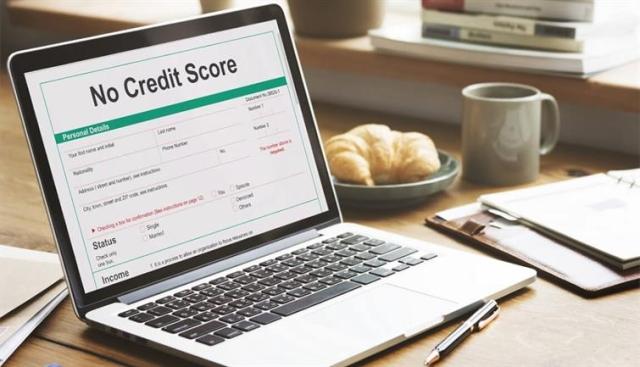Renting an apartment with no credit can be challenging, but it's absolutely possible. Here's how you can secure housing, even without a traditional credit history.
Key Takeaways: Renting with No Credit
- Bring proof of income and strong personal references
- Offer a higher security deposit to offset risk
- Seek out private landlords who may be more willing to work with you
- Consider a co-signer or roommate with good credit
Is no credit worse than bad credit?
Yes, no credit is often better than bad credit.
Renters with bad credit and renters with no credit often get put in the same group, but renters with no credit are in a much different situation than those with a low credit score.
Having no credit means that your credit history is a blank slate, so you have no credit history to base a score off of. Having a low credit score means that you have made some financial mistakes along the way. While landlords perceive both as potential risks, a person with no credit may be seen as less of a risk than a person with bad credit.
The reason a landlord runs a credit score is to determine if you’ll be a trustworthy tenant. A person with a poor credit score may have a history of missed payments, maxed-out cards, and outstanding debts, making them seem less likely to pay their rent on time and in full.
Those with no credit have nothing to prove their trustworthiness, but there are plenty of ways to win the trust of your potential landlord.
Pros & Cons of Renting with No Credit
|
Pros |
Cons |
|
Seen as less risky than bad credit |
May require higher deposit or co-signer |
|
Opportunity to build new credit |
Fewer options with corporate landlords |
|
Flexibility with private rentals |
May need to explain situation clearly |
Tips for Renting an Apartment with No Credit
1. Bring references and proof of income
- Get references from your employer, professors, or supervisors
- Gather recent pay stubs or bank statements
2. Offer to pay a larger security deposit
- Helps ease the landlord's concerns
- Shows financial responsibility
3. Be honest about your situation
- Explain why you have no credit
- Emphasize job stability or steady income
4. Get a cosigner or guarantor
- Consider enlisting the help of a co-signer or guarantor to increase your chances for approval
- If you default, they assume responsibility
5. Find a roommate with credit
- A roommate with strong credit can be the primary leaseholder
6. Find a privately owned rental
- Landlords with fewer properties tend to be more flexible
- Search for listings that mention "no credit check"
How to Build Credit Fast for Renting
Living with roommates can be a fun and rewarding experience, but understandably, you may not want to live with them forever. So, let’s get you on the path to good credit fast. In a short time, you could have a stellar FICO score. Here’s how to build credit the right way:
Check your credit
Check annualcreditreport.com to see exactly where you stand. (This is a completely free, government-mandated website. Beware of any site that wants you to pay for your credit report or asks you for a credit card.)
Apply for a secured credit card
A secured credit card is ideal for anyone who can’t get a regular credit card because of the “no credit” problem.
A secured credit card works like this: You give the bank a certain amount of cash – let’s say $500. In turn, the bank gives you a credit card, and you can charge up to $500. Be sure to look at different options. Some banks might charge an application fee or an annual fee. Avoid those because they’ll eat up the $500 very quickly.
Make sure the issuer of the secured credit card reports to all three major credit bureaus (TransUnion, Equifax, and Experian). Don’t keep this card any longer than you have to, and be sure to pay off the card every month (don’t keep a balance).
Aim for a high credit score
While it might seem like an uphill battle to achieve a high credit score when you have no credit history, it's a goal worth pursuing. If your credit really is non-existent, you want to aim for 750-850. This is “excellent.”
Most apartment communities want a credit score of 600 or above.
Consider a credit-building loan
If you don’t want a secured credit card, get a credit-builder loan. These loans are specifically designed for people without credit. Find one with a very low, manageable monthly payment and a shorter term – 24 months or less.
Usually, the money is deposited into a savings account and you can’t access it until you’ve paid off the loan. If you pay on time every month, you’ll walk away with cash and credit!
Get a car loan
While it might seem counterintuitive, getting a car loan can help you establish a credit history, which can be beneficial when renting an apartment without a credit history. You’ll most likely need a cosigner, but this is a great way to build credit as long as you pay on time every month.
Make payments toward your student loans
Start making payments on your student loans and watch your credit score grow. Make sure you pay your loans on time. If you are late or default on your loans, it will have a negative impact on your credit score.
Monitor Your Credit & Maintain Low Utilization
You want to keep your credit card balances as low as possible, if not completely paid off. If you have an open line of credit, you’ll improve your utilization ratio, which is basically how much credit you have versus how much you use it.
If, for example, you have a $500 credit limit on a card and you owe $250, your credit ratio is 50 percent. A low credit ratio shows you use less of your available credit, which translates to you being responsible with credit and able to manage it. Keep your credit ratio around six percent, or, in this case, less than $30.
Keep in mind the utilization ratio only applies to credit cards. Car loans and other installment loans use a different rate called the debt-to-income ratio. To find your debt-to-income ratio (or DTI), divide your debt (credit cards, car loan, other loans) by your gross monthly income.
So, if you make $2,000 per month and you owe $1,000 every month, your DTI is 50 percent. This number doesn’t impact your credit score (your income isn’t a factor in your score), but it’s good to know if you ever want to apply for a loan —the lower this ratio is, the better.
Checklist: How to Rent Without Credit
- Gather proof of income and references
- Prepare to explain your credit situation
- Offer a larger security deposit if needed
- Secure a co-signer or creditworthy roommate
- Apply for listings with flexible landlords
- Begin building credit for future rentals
Renting without credit is possible. With preparation, transparency, and a proactive plan to build credit, you can land an apartment and set yourself up for long-term financial success. Ready to get started? Browse apartments for rent now and start applying!
This article was originally published on October 17, 2018, and has since been updated.
Frequently Asked Questions About Renting with No Credit
Does my age play a role in my credit score?
No, your age does not affect your credit score, but the age of your credit line impacts your score. While nothing speeds up time, rest assured knowing that by opening your first line of credit, you’re starting your credit journey. As long as you start off making payments on time and in full, you’ll start building credit in no time. You can also be added as an authorized user to a trusted individual’s credit card to jump start your credit history.
Is no credit worse than bad credit?
No, having no credit isn’t as bad as having a low credit score. Having no credit just means that you aren’t able to prove your financial reliability, while having bad credit means you have a history of making financial mistakes. As long as you start building credit the right way and make a few concessions, like paying a higher security deposit, you should be able to rent while building your credit.
What is the minimum credit score to rent an apartment?
Credit score requirements are up to the property management company or landlord to decide. Generally, the minimum credit score is around 600 to 620. Any credit score above 670 is considered great, and you shouldn’t have any issues with having your credit approved.
What if I can't get approved for an apartment?
Consider renting a privately owned rental property. Look into renting out a room, renting out a condo owned by an individual, or renting through a small, privately owned rental company. A property owned by a corporation is less likely to be willing to give you a chance than an individual owner or manager.
Can I get an apartment with a 600 credit score?
FICO considers 600 to be a fair credit score. Typically, the minimum credit score for renting an apartment is around 620 to 650, but it varies by apartment community.






